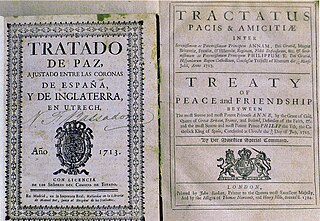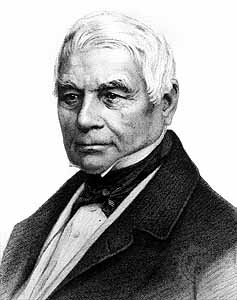
The 18th century lasted from January 1, 1701 to December 31, 1800. During the 18th century, elements of Enlightenment thinking culminated in the American, French, and Haitian revolutions. This was an age of violent slave trading, and global human trafficking. The reactions against monarchical and aristocratic power helped fuel the revolutionary responses against it throughout the century.

1770 (MDCCLXX) was a common year starting on Monday of the Gregorian calendar and a common year starting on Friday of the Julian calendar, the 1770th year of the Common Era (CE) and Anno Domini (AD) designations, the 770th year of the 2nd millennium, the 70th year of the 18th century, and the 1st year of the 1770s decade. As of the start of 1770, the Gregorian calendar was 11 days ahead of the Julian calendar, which remained in localized use until 1923.

1758 (MDCCLVIII) was a common year starting on Sunday of the Gregorian calendar and a common year starting on Thursday of the Julian calendar, the 1758th year of the Common Era (CE) and Anno Domini (AD) designations, the 758th year of the 2nd millennium, the 58th year of the 18th century, and the 9th year of the 1750s decade. As of the start of 1758, the Gregorian calendar was 11 days ahead of the Julian calendar, which remained in localized use until 1923.

1778 (MDCCLXXVIII) was a common year starting on Thursday of the Gregorian calendar and a common year starting on Monday of the Julian calendar, the 1778th year of the Common Era (CE) and Anno Domini (AD) designations, the 778th year of the 2nd millennium, the 78th year of the 18th century, and the 9th year of the 1770s decade. As of the start of 1778, the Gregorian calendar was 11 days ahead of the Julian calendar, which remained in localized use until 1923.

1777 (MDCCLXXVII) was a common year starting on Wednesday of the Gregorian calendar and a common year starting on Sunday of the Julian calendar, the 1777th year of the Common Era (CE) and Anno Domini (AD) designations, the 777th year of the 2nd millennium, the 77th year of the 18th century, and the 8th year of the 1770s decade. As of the start of 1777, the Gregorian calendar was 11 days ahead of the Julian calendar, which remained in localized use until 1923.

1775 (MDCCLXXV) was a common year starting on Sunday of the Gregorian calendar and a common year starting on Thursday of the Julian calendar, the 1775th year of the Common Era (CE) and Anno Domini (AD) designations, the 775th year of the 2nd millennium, the 75th year of the 18th century, and the 6th year of the 1770s decade. As of the start of 1775, the Gregorian calendar was 11 days ahead of the Julian calendar, which remained in localized use until 1923.

1710 (MDCCX) was a common year starting on Wednesday of the Gregorian calendar and a common year starting on Sunday of the Julian calendar, the 1710th year of the Common Era (CE) and Anno Domini (AD) designations, the 710th year of the 2nd millennium, the 10th year of the 18th century, and the 1st year of the 1710s decade. As of the start of 1710, the Gregorian calendar was 11 days ahead of the Julian calendar, which remained in localized use until 1923. In the Swedish calendar it was a common year starting on Saturday, one day ahead of the Julian and ten days behind the Gregorian calendar.

1713 (MDCCXIII) was a common year starting on Sunday of the Gregorian calendar and a common year starting on Thursday of the Julian calendar, the 1713th year of the Common Era (CE) and Anno Domini (AD) designations, the 713th year of the 2nd millennium, the 13th year of the 18th century, and the 4th year of the 1710s decade. As of the start of 1713, the Gregorian calendar was 11 days ahead of the Julian calendar, which remained in localized use until 1923.

1712 (MDCCXII) was a leap year starting on Friday of the Gregorian calendar and a leap year starting on Tuesday of the Julian calendar, the 1712th year of the Common Era (CE) and Anno Domini (AD) designations, the 712th year of the 2nd millennium, the 12th year of the 18th century, and the 3rd year of the 1710s decade. As of the start of 1712, the Gregorian calendar was 11 days ahead of the Julian calendar, which remained in localized use until 1923. In the Swedish calendar it began as a leap year starting on Monday and remained so until Thursday, February 29. By adding a second leap day Sweden reverted to the Julian calendar and the rest of the year was in sync with the Julian calendar. Sweden finally made the switch from the Julian to the Gregorian calendar in 1753. This year has 367 days.
James Smith may refer to:

Viscount Selby, of the City of Carlisle, is a title in the Peerage of the United Kingdom. It was created in 1905 for the Liberal politician Sir William Gully upon his retirement as Speaker of the House of Commons. He was the son of the physician James Manby Gully. The title of the viscountcy derived from the maiden name of Gully's wife, Elizabeth Selby, daughter of Thomas Selby. As of 2017 the title is held by the first Viscount's great-great-great-grandson, the sixth Viscount, who succeeded his father in 2001.

William Court Gully, 1st Viscount Selby PC, KC was a British lawyer and Liberal politician. He served as Speaker of the House of Commons between 1895 and 1905.
James, Jim(mie), or Jimmy Walker may refer to:

1776 (MDCCLXXVI) was a leap year starting on Monday of the Gregorian calendar and a leap year starting on Friday of the Julian calendar, the 1776th year of the Common Era (CE) and Anno Domini (AD) designations, the 776th year of the 2nd millennium, the 76th year of the 18th century, and the 7th year of the 1770s decade. As of the start of 1776, the Gregorian calendar was 11 days ahead of the Julian calendar, which remained in localized use until 1923.
The following lists events that happened during 1819 in New Zealand.
John Gully was a New Zealand landscape painter.

St. Giles was a British Thoroughbred racehorse and sire. In a career that lasted from October 1831 to July 1835 he ran eleven times and won five races. After showing little form as a two-year-old, he made marked improvement to win his first three races of 1832, culminating with a highly-controversial success in The Derby. His only subsequent wins came in two minor races in 1835 and he was eventually sold and exported to stand as a stallion in the United States.
The following is a list of notable deaths in January 2000.















